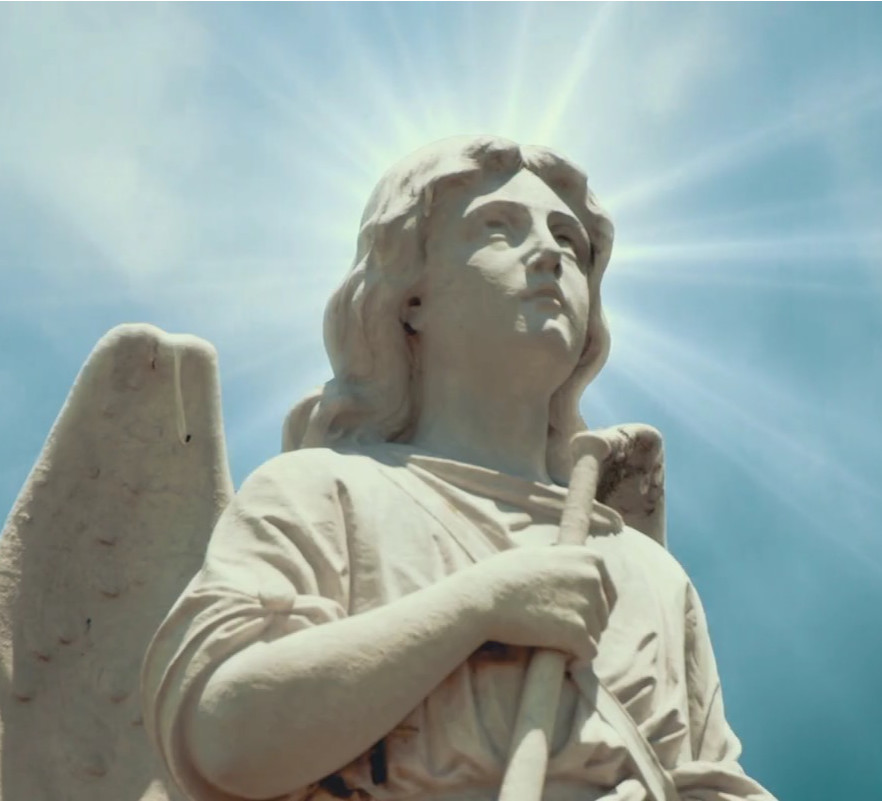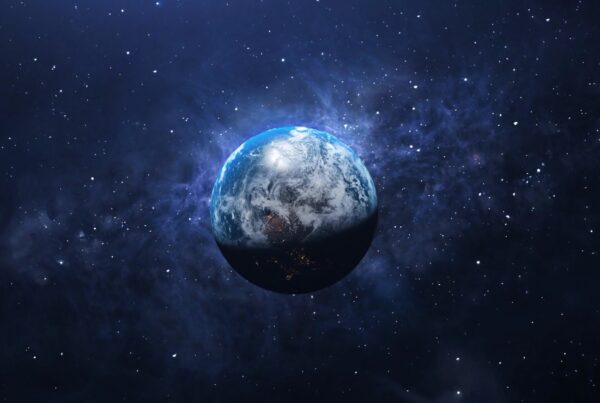A previous question asked about why God chose to create us when he had to know about future sin, suffering, and hell. Part of my response proposed that God sometimes allows what he does not want in order to achieve his larger purpose. And this larger purpose includes God’s plan to defeat Satan and his followers in a “cosmic struggle” with an eternal victory. In a sense, then, God’s choice to create the universe and humanity (with its sin and suffering) encompasses God’s plan to judge Satan and other fallen celestial beings. See https://roomfordoubt.com/post/why-did-god-create-the-universe.
In a follow-up question, Ashwin pushes the point back a level. Essentially, he asks, why did God create anything (including angels) prior to his creation of the universe? He says, “If God did not create angels, there wouldn’t be fallen angels, the cosmic struggle, sin, or hell.”
He offers an analogy to drive his point home. “Let’s say I have foreknowledge with 100% certainty that my future child will reject Christ’s love and ultimately suffer for eternity in hell. Now let’s say I’m given a choice whether to have him or not have him. Which one would I choose? I would personally choose not to have him because I know he will reject Christ and suffer for eternity…. It would not be loving of me to have him.”
Then he says, “Now let’s say I create my son despite knowing he will suffer for eternity. [And a friend asks me]: ‘Why did you have your son when you knew he would ultimately suffer forever?’ I reply, ‘I did not want my son to go to hell. I only wanted to allow him to go to hell.’… I can only imagine the friend asking, ‘How is that different? If you truly loved your son, why would you even want to allow him to go to hell? Why didn’t you choose to not have him instead, so that you didn’t have to allow his eternal suffering?'”
HERE’S A RESPONSE:
Thanks, Ashwin, for your thoughtful and difficult question. Fundamentally, it asks why a “good” God would create anything that would result in any evil to exist. I would love to “answer for God” on this, but the best I can do is speculate, with some biblical justification, some possibilities that might be involved. In the final analysis, however, answers to such perplexing questions will ultimately have their stopping point. As a result, we experience a tension that arises from a divinely-endowed desire to know and our human limitation to know as much as we desire. Often, we want to know more than God has chosen to answer. In saying this, I’m not trying to justify a simplistic “just believe”; I’m highlighting a realistic point that, after we prod and push—seek to find (Matt. 7:7-8)—we will inevitably come short of our pursuit of a definitive explanation. While this may seem unsatisfactory, it’s important to remember that any philosophy or religious perspective faces the same inevitable stopping point. I guess my basic claim is this: God gives us enough but not as much as we often want and sometimes demand.
The book of Job powerfully addresses this. Job has it out with God. His friends have their theological answers, but they are ultimately insufficient to Job and even to God. Job digs in further. And finally, God speaks (Job 38–42). God’s words seem harsh, but they convey the obvious and undeniable point that “God is God and we are not.” Eventually, Job concedes, “I spoke of things I did not understand, things too wonderful for me to know” (Job 42:1-3 NIV). And Job expresses an ultimate discovery of God: “My ears had heard of you but now my eyes have seen you” (Job 42:5).
With that preface, I’ll first offer some thoughts on why I believe God created angels in the first place.
- Angels were created (Col. 1:16) to worship God before the creation of the physical universe. The book of Revelation describes the angels as worshipping God (e.g., Rev. 5:11-14; 7:11-12), and the implication is that they have always been worshipping God.
- With the foreseen creation of the physical universe, God created angels, in part, because of their eventual role with humanity. The Bible is filled with references to the human-directed work of “the angel of the Lord” or of the angels. And angels were also important for Jesus’ earthly life (e.g., Lk. 2:8-15; Matt. 2:13; Matt. 4:11; Lk. 22:43).
- In spite of God’s foreknowledge of “fallen angels” (2 Pet. 2:4; Jude 6), He created them to worship Him in heaven and to administer His will with His physical creation. In other words, the creation of angels fits within the larger will of God—to create a physical realm with physical beings who could potentially be redeemed from their fallen sinfulness. In my view, this is a major distinction between angels and humans: there was no “plan of redemption” for angels; whereas God predestined a “plan of redemption” for humanity (e.g., Acts 4:28; Rom. 8:29-30; Eph. 1:5-11).
- God’s creation of humanity was necessary for God to demonstrate his righteousness and mercy (Rom. 3:25-26 NIV; Titus 3:3-7); and God’s creation of angels was necessary for His ultimate cosmic plan, which involved humans, to come to fruition.
Second, let’s consider your intriguing analogy about a parent who might know with certainty that a not-yet-born child would experience great suffering, reject God, and be eternally lost. Why would a loving parent choose to have that child?
Let’s say, instead of thinking of a single child, we think of multiple children—and by extension hundreds, thousands, millions, and even billions of children. And let’s say you know for certain—like God—that many of them will accept Christ and live with love and devotion to God and others, even though many of them will choose to reject God. The revised question, then, might be this: Would a prospective parent understandably choose to have all those children under this scenario? This scenario would give all of them the experience of life and the opportunity to choose to accept or reject the parent. My own moral sense leads me to appreciate the choice of a parent (God) who would allow life and have more to gain by having (or creating) those children. This scenario undergirds my point that God may allow what He does not want in order to accomplish a larger and more perfect plan.
One other consideration is important in this context. Your analogy seems to presume that all children who reject God will suffer exactly the same eternal fate in exactly the same way. I think this presumption, though it’s broadly believed, is morally and biblically problematic. Scripture casts considerable doubt on the notion that God’s judgment will simply throw everyone into either the “saved” or “lost” category and treat everyone in each category exactly the same. A cogent biblical case can be given that God’s righteous and merciful judgment will manifest different “levels” of reward and punishment. And if this is true, then my moral reprehension is reduced considerably as I trust a righteous God to judge individuals according to their actual works and according to his mercy (e.g., Rom. 2:6; 2 Cor. 5:10; Matt. 16:27; 1 Pet. 1:17; 2 Cor. 11:14-15; Rev. 2:23; 18:4-7). On this point, see the article at https://roomfordoubt.com/post/if-god-is-loving-how-could-he-condemn-people-to-an-eternity-of-suffering-in-hell.
Well, this is my effort to answer your very difficult question about God’s creation of anything, including angels.
BTW, to follow your analogy, God had a choice regarding his only Son. And God the Father “did not spare his own Son, but gave him up for us all” (Rom. 8:32a). God chose to “have” that child whom he knew would suffer and die a horrendous and unjust death. I hope all this gives you food for thought that will contribute to a stronger faith in the God of truth who loves us to the point of sacrificing his Son in our behalf.
~ Rich Knopp





